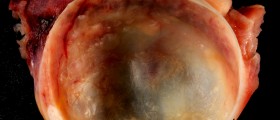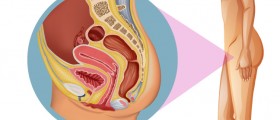
Induced menopause occurs in some women when their ovaries are damaged, typically by radiation, during the chemotherapy or because of the use of some medications. Induced menopause sometimes occurs when woman’s ovaries have been surgically removed. The loss of function of the ovaries before the age of 40 is medically known as premature ovarian failure. However, the average age of natural menopause is somewhere around 53 years of age. Induced menopause is therefore, something completely different from the normal natural menopause. The dysfunction of the ovaries, loss of eggs and removal of the ovaries from the body are not natural and the body typically reacts intensively to these sudden changes. For some of the affected women, induced menopause may seem like the end of the world. Many of them are finding it hard to cope with new circumstances, changes of the body and future inability to conceive. However, induced menopause is not the end of the world and all of these women will continue to live normally after some time. It is important to understand why do these changes occur and what to expect, in order to leave it behind and continue living normally.
Why does it happen?
During the natural menopause, women’s body gradually adapts to hormonal changes which take place when the ovaries start decreasing their production of primary sex hormones: estrogen and progesterone. Induced menopause involves progressive damage to the ovaries or removal of the ovaries, causing a sudden onset of very unpleasant menopause-like symptoms.
Symptoms
Most of the women affected by induced menopause will suffer from intense and sudden symptoms of menopause. The most common symptoms include hot flashes, night sweats, irregular periods, loss of sex drive and vaginal dryness. However, some of the women may also suffer from constant fatigue, mood swings, sleep disorders, problems with memory and concentration, depression and headaches. These women are also at the greater risk of osteoporosis, which is a degenerative bone disorder where there is thinning and weakening of the bone.
Complications
Women affected with induced menopause will certainly become infertile before the normal age. For many women, this is a very disabling and delicate situation and some of them will find it extremely hard to cope with it. However, additional health implications of premature ovarian failure are also possible, and they include heart disease, Hashimoto's thyroiditis, Addison's disease, and various autoimmune disorders.
Management
Some of the affected women may try to alleviate their symptoms using the hormone therapy with estrogen and progesterone. This treatment may be beneficial in reducing the symptoms like hot flashes, disturbed sleep, and vaginal dryness, but it is sometimes associated with more serious health problems like coronary heart disease and cancers.

















Your thoughts on this
Loading...